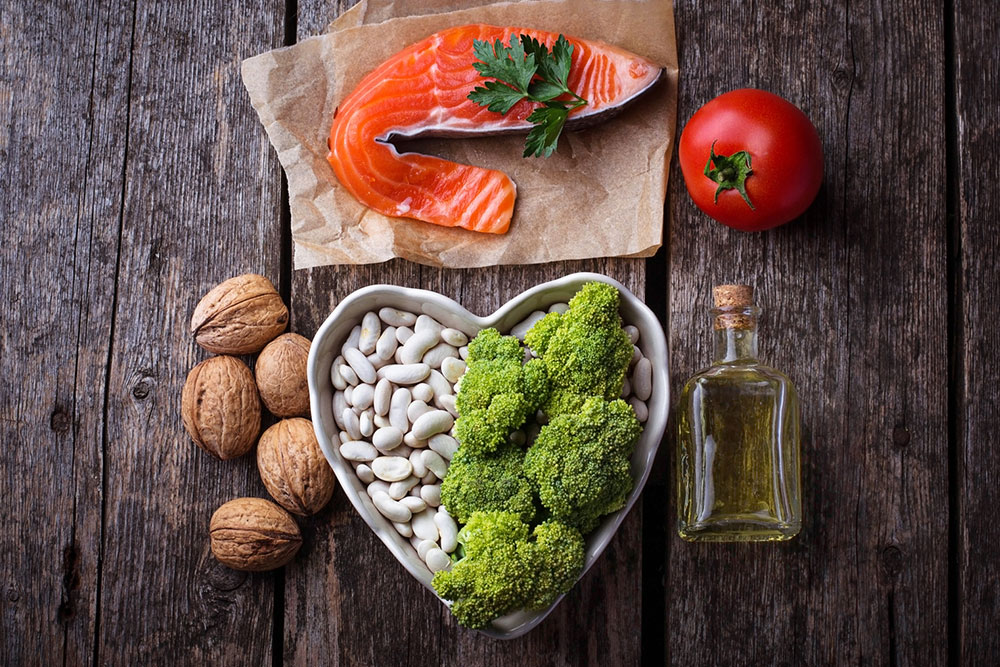Healthy Diet Plan for Patients with Crohn’s Disease
You can use bacteria for fighting bacteria! Confused? Some health disorders that are caused by bad bacteria can be directly treated or the symptoms can be eased to a large extent by consuming good bacteria, commonly referred to as probiotics. Before you know how they can help manage Crohn’s disease, you must know what it is all about. Crohn’s disease is a chronic inflammatory disease that affects the functioning of the intestines.
The immune system of those affected by this disease starts attacking the good bacteria present in the gut, resulting in a steep depletion of good bacteria. The term probiotics can be split into “pro” meaning for, and “biota” meaning life.

The role of good bacteria
The bacteria present in our digestive system play a key role in digestion and immunity. A healthy gut maintains a delicate balance of good bacteria. This balance is essential for proper digestion and assimilation of food. Digestive disorders like Crohn’s or intake of antibiotics tend to upset this balance, resulting in inflammation of the intestines and poor digestion. Due to the depletion of naturally occurring good bacteria in the gut, there is a need for external replenishment by consuming probiotics.
Probiotics for Crohn’s Disease
A typical symptom of Crohn’s disease is alternating periods of flare up and inactivity. This is an autoimmune disease that has no cure, but symptoms can be managed by maintaining a healthy lifestyle. Consuming probiotics for Crohn’s disease helps in managing the symptoms effectively. Ensuring a good supply of nutrients to the stomach and intestines helps bring about remission. Crohn’s disease diet plan must include probiotics, which have proven digestive benefits. The main advantage of taking probiotics to ease symptoms of Crohn’s is that they are natural sources that contain live active cultures in contrast to dried or dormant bacteria.
Can probiotics help in the treatment of Crohn’s Disease?
Probiotics help in restoring the lost balance of gut bacteria due to Crohn’s disease. They work in a twofold manner: first to replenish the lost gut bacteria, the second is to help heal intestinal inflammation. Although, the role of probiotics in treating Crohn’s has not been established clearly, regulated consumption of probiotics foods is known to improve digestion and immunity.
List of food items for Chron’s Disease
Crohn’s affects different people in different ways, meaning there cannot be a general rule book for the foods to eat or to avoid. It is essential that each person evaluates his/her own experience with different food, before arriving at a list of foods to have and to avoid. However, the primary characteristic of food to be consumed by those affected with Crohn’s should be easily digestible. Here is a list of food items you should include in your Crohn’s disease diet plan:
- Almond Milk
Majority of those affected by Crohn’s are lactose intolerant. Almond milk is a great alternative to dairy milk. Almond milk is derived from ground almonds and can be enriched to contain as much calcium, as contained in dairy milk. - Eggs
Eggs are an excellent and inexpensive source of protein that can be easily digested. - Oatmeal
Oatmeal contains soluble fiber that promotes absorption of water and easy passage through the digestive tract. - Vegetable Soups
Soups are safe to consume when one experiences flare-ups. Vegetables in the pureed form have the nutrients intact, unlike when you boil them. - Lean Protein
Lean protein like seafood is the best option for those looking to increase their protein intake. Seafood prepared by steaming, grilling or boiling is a good option for those with Crohn’s disease. - Papaya and banana
Tropical fruits like banana, papaya, and mango are easy to digest. Papaya is packed with nutrients and also contains an enzyme that helps digest proteins. - Mashed Potatoes
Mashed potatoes are a comfort food for Crohn’s, especially after a flare-up phase. - Avocado
These fruits are packed with nutrients and are much easier to digest than other sources of fiber.
Foods to avoid when you have Crohn’s disease
- Alcohol, mixed drinks like beer, wine
- Butter, mayonnaise, margarine, oils
- Coffee, tea, chocolate
- Fatty or fried foods
- Foods that make you gassy
- Spicy food
- Red meat
Although the role of probiotics is improving the overall health of a person, the role that it plays in treating Crohn’s disease symptoms is yet to be clearly established. Consuming probiotics foods is generally considered safe unless you have a weak immune system or if your Crohn’s symptoms are triggered by certain foods. Probiotics for Crohn’s disease must be consumed after detailed consultation with your physician and ruling out of any food intolerances.

